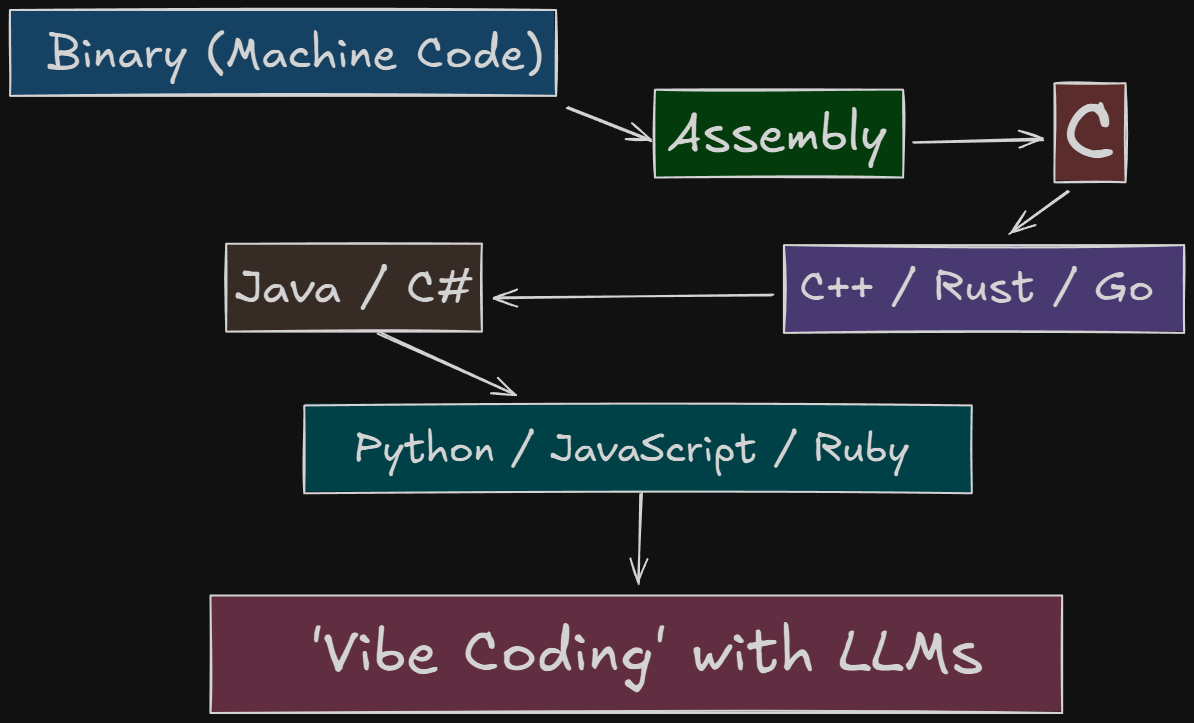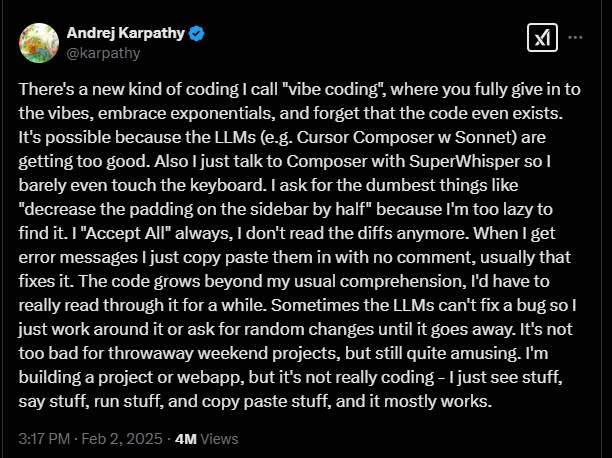AI and the Evolution of Software Engineering: From Code to Cognition
For as long as software has existed, there’s been a predictable cycle: a breakthrough emerges, traditionalists resist, and then—inevitably—it becomes the new standard. AI-driven coding tools are the latest in this lineage, triggering existential debates that sound eerily familiar to arguments from past decades.
“Real programmers write assembly.”
“You can’t be a great developer without mastering memory management.”
“If you rely on AI, you’re not a real coder.”
But here’s the thing: every major abstraction that has propelled software engineering forward was met with the same skepticism. And each time, the skeptics lost.
The Persistent Myth of “Real Programmers”
Once upon a time, writing assembly was considered the mark of a true programmer. Then, C abstracted away registers. Then Java and Python abstracted away manual memory management. Now, AI is abstracting away syntax and boilerplate. The old guard scoffed at each stage, but history kept marching forward.
The fundamental question is not whether AI will change software engineering—it already has. The real question is whether today’s developers will evolve with it or get left behind.
The Karpathy Paradigm: Knowledge vs. Expertise
Look at someone like Andrej Karpathy, one of the brightest minds in AI. Is he spending his days optimizing assembly loops? Doubtful. His expertise lies in designing intelligent systems, not handcrafting low-level operations. If he needs deep system optimizations, he knows how to solve the problem—either by learning just enough or by collaborating with those who specialize in it.
This is what separates great engineers from the rest. They don’t fetishize technical trivia; they master the art of problem-solving.
AI is Just the Next Compiler
Software engineering is a relentless pursuit of efficiency. If a task can be automated, it will be. We’ve seen it before:
Compilers replaced hand-coded machine instructions.
High-level languages removed the need to think in registers.
IDEs and autocomplete reduced syntax errors and boilerplate.
Now, AI tools are doing the same for code generation. Fighting this is like arguing that real programmers should still be flipping switches on punch-card machines.
If compilers didn’t ruin programming, neither would AI.
The Future of Engineering is Thinking, Not Typing
As AI continues to evolve, the best software engineers won’t be those who can recall obscure syntax from memory. Instead, they’ll be the ones who:
Define and deconstruct complex problems.
Use AI intelligently as an amplifier, not a crutch.
Architect systems with a deep understanding of trade-offs.
Validate and debug AI-generated solutions with precision.
Think critically instead of blindly following suggestions.
This is the real skill of the future—not memorizing for loops but mastering the strategic application of AI tools.
What Developers Need to Understand About AI
While AI is transformative, it’s not a panacea. Here’s where human expertise remains indispensable:
AI isn’t infallible. Today’s models often produce incorrect, inefficient, or outright absurd code. Developers still need a foundational grasp of software principles to vet AI output.
Debugging is the new frontier. If AI writes 80% of code, future developers must excel at diagnosing, interpreting, and fixing AI-generated solutions.
Low-level knowledge still has its place and might handle high-level tasks, but fields like embedded systems, OS development, and high-performance computing still require deep technical expertise.
The Future: Engineer the Systems, Not Just the Code
Compilers didn’t destroy programming. High-level languages didn’t make developers obsolete. AI won’t either. But it will change the role of a software engineer.
The best engineers of the future won’t be syntax experts; they’ll be architects, strategists, and problem-solvers. The question is, will you embrace this shift or cling to a dying paradigm?
Ultimately, the industry doesn’t care if you can hand-code a bubble sort. It cares if you can build something that matters. AI isn’t here to replace great engineers—it’s here to reveal who they really are.



